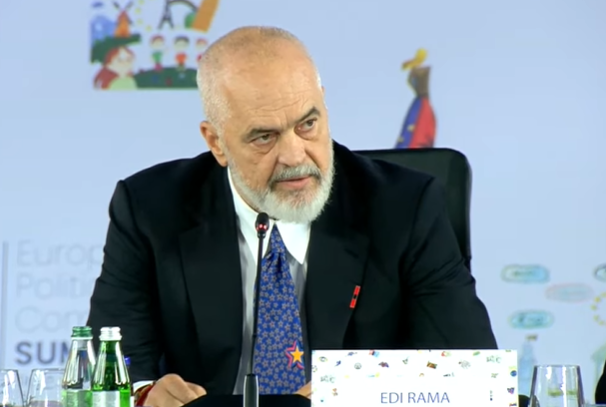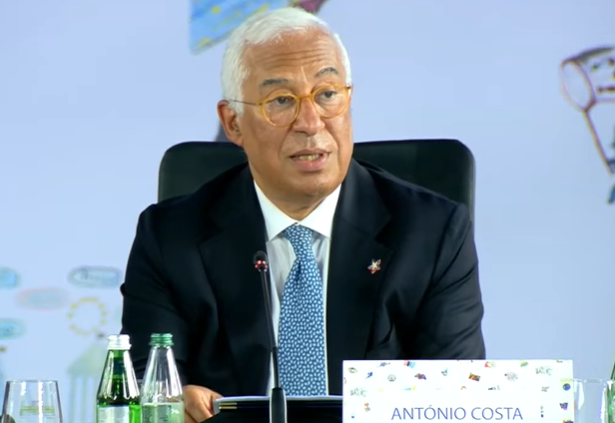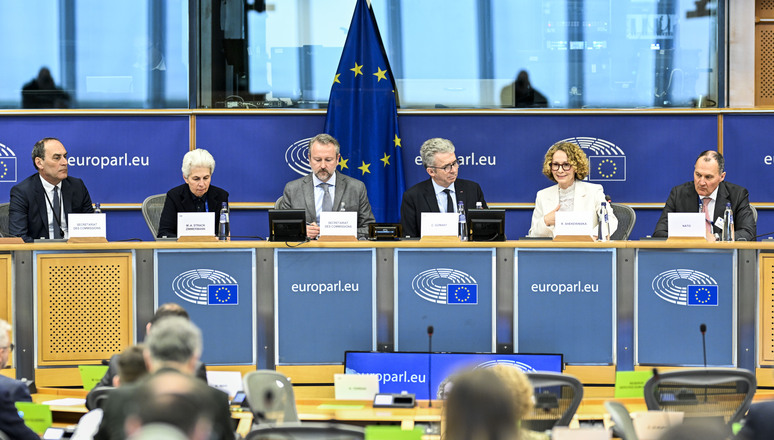Power off: Where do EU member states stand on school smartphone bans?

Children being glued to their smartphone screens at school, at home and at any point in between has become the new normal. Concerns over negative psychological effects have risen. They range from students being distracted at school, to misinformation by fake news, social media addiction to online harassment and bullying.
When meeting in Brussels earlier this week, the EU’s youth and education ministers debated a range of measures from phone bans in schools, tougher age checks for online activities, restrictions on the use of social media for minors and an EU-wide plan to fight cyberbullying.
Italy is on the front line in the push for stronger restrictions on mobile phone use, with Education Minister Giuseppe Valditara presenting an initiative to ban the use of smartphones in class for under-14s across Europe at the meeting. According to diplomatic sources, eleven EU members – among them France, Sweden, Austria, Cyprus or Greece – showed their support, as did the rotating Polish presidency.
“If we truly love our children, we must guarantee them a break from cell phones at school,” said Valditara. He called for a coordinated approach at European level on “the issue of access to social networks to combat phenomena such as cyberbullying, child pornography, acts of self-harm and gender-based violence”.
EU Commissioner for Youth Glenn Micallef on Monday launched this vision for an Action Plan on Cyberbullying. “Social media has its benefits, but it can also impact our mental health and social cohesion,” he said on X. “I want people, especially children and other vulnerable groups, to feel safe online, free from harm and harassment.”
Digital Distraction
Valditara said that “the results of scientific studies show that the abuse of mobile devices during childhood and pre-adolescence negatively affects cognitive development, causing loss of concentration and memory, reduction of language skills and critical thinking”. He added: “In addition to the decline in school performance, excessive use of smartphones at an early age is recognised as one of the main causes of social isolation.”
According to data from the OECD’s PISA 2022 study, some 65 percent of students said they were distracted by digital devices during maths lessons.
The study also raised concerns about addictiveness: “On average across OECD countries, 45 percent of students reported feeling nervous or anxious if their phones were not near them.”
Overall the findings, which were released in 2023 and 2024, revealed that moderate use of digital devices at school and for learning lead to better performance and students reported a “greater sense of belonging” at school. However, if students spent more than an hour a day on their devices using them for leisure they tended to have lower maths scores. PISA assesses 15-year olds skills in maths, science and reading.
School rules
Therefore phone bans in schools are a step some member states have already taken and more are considering. But the range of restrictions varies within individual states, regions, or even schools. There are also variations in severity – from total bans where phones are not even allowed on school premises to use being restricted to certain periods such as breaks between classes.
Bulgarian students have been banned from using smartphones in class since 2016. The government is currently pushing towards a total ban of smartphones in schools, except for strictly educational purposes, medical necessities or in emergencies. Education Minister Krasimir Valchev said he expected a parliamentary vote in June.
In Spain, restrictions on the use of mobile phones at school have been in place since the academic year 2020-21, but they vary from region to region. The country’s State School Council recommended in 2024 that secondary school pupils should switch off their mobile phones from the time they enter the school to the time they leave the premises, and in pre-school and primary schools it advocates not bringing them at all unless there are “very specific” individual reasons. Most autonomous communities also agree to a total ban of the use of mobile devices in infant and primary education.
France banned primary and secondary school students from using phones on school premises back in 2018.
Italy’s education ministry said that as of last September, the use of smartphones in the classroom has been banned for all students.
The Danish government is also planning to ban the use of mobile phones in schools and after-school clubs.
Austria is the latest country to introduce restrictions. Since May 1, Austria has had a mobile phone ban in place both in class and during recess. “We’re seeing more and more member states adopting the same rule,” said Education Minister Christoph Wiederkehr earlier this week. He added making schools mobile phone-free zones leads to better performance and fewer conflicts.
In Sweden, the government is proposing a new, total ban on the use of mobile phones in elementary schools (up to age 16). The phones will be collected in the morning and not released again until the students leave school. Teachers and headmasters will also have the right to confiscate phones, iPads, smart watches and other equipment from the students.
“It is really important that we reduce the amount of phones and screen time in school,” school minister Lotta Edholm told a press conference in March.
A Swedish government agency last year recommended maximum 2-3 hours screen time per day for 13-18 year olds, 1-2 hours for 6-12 years olds and not more than one hour per day for kids under 6.
Only individual schools forbid mobile phones in schools in the Czech Republic, but public opinion is tending towards a ban of smartphones in schools. According to a survey published in March, 73 percent of primary school teachers support such restrictions.
In Germany, education is within the purview of the federal states. Some of them call for restrictions on the private use of mobile phones in schools and plan to pass regulations to that end. Until then, many schools come up with their own.
In Belgium, the Flemish government, the government of the French Community and the federal government have no detailed plans on how they plan to address the use of smartphones and social media among young people. Policy largely focuses on media literacy education in schools, through workshops or television programmes.
Earlier this month, a group of Belgian experts and psychiatrists however issued an open letter to the Flemish and federal governments, calling for a clearer and stricter policy on smartphone use among children and adolescents. They also advocate banning social media use until the age of 16.
The competent federal minister Vanessa Matz, responsible for digitisation, said she was not against thinking about bans on a national level, but emphasised that the topic is more interesting within a European framework.

TikTok in the crosshairs
Another approach taken by some countries is restricting access to social media for young people.
EU membership candidate Albania for example went after TikTok in late 2024, banning the popular App for a year. According to Premier Edi Rama, this social network had incited violence and bullying among Albanian teenagers. The ban has the overwhelming support of parents, the government said, with 90 percent of surveyed parents in favour.
In Belgium digitisation minister Matz last month also demanded action from online platform Tikok and European authorities against “SkinnyTok”, the TikTok trend that promotes being extremely slim among youngsters.
Total bans are not the only way to protect children online – age checks and privacy laws are another. EU laws such als the Digital Services Act require platforms to check the age of users, and the General Data Protection Regulation (GDPR) is meant to protect data privacy. However, clicking on “I am over 18” is easy – there are currently no reliable systems that can verify the age of users that don’t fall foul of privacy laws.
French President Emmanuel Macron said earlier this week he wants to require teenagers to verify their age before registering on social media. Already last year he advocated for a ban on social media for children under 15, and a ban on cell phones for children under 11. He stressed again that this was also a European responsibility: “We should also engage in a parallel European fight, but I think it must be done”
Minister Delegate for Digital Affairs Clara Chappaz told La Tribune Dimanche that France was giving itself “three months” to “mobilize its European partners” on a “European agreement” requiring social media to verify the age of teenagers, failing which the government would impose sanctions.
“Social media, under the age of 15, is a no-no.”French Minister Delegate for Digital Affairs Clara Chappaz
But with all the talk about bans it is important not to forget that mobile phones have become an ubiquitous part of all our lives, no matter the age. They are tools for communication between family and friends, and for many parents a smart device is also a means of getting assurance over their children’s whereabouts.
Some specialists like German child protection expert Benjamin Thull of the Baden-Württemberg State Office for Communication even consider bans counterproductive. “The smartphone is the medium through which everything happens. I think banning it from schools is a mistake.” He says there are children and young people who don’t learn media skills at home. Therefore, the topic should play an important role in schools.
This article is published twice a week. The content is based on news by agencies participating in the enr.
What's Your Reaction?
 Like
0
Like
0
 Dislike
0
Dislike
0
 Love
0
Love
0
 Funny
0
Funny
0
 Angry
0
Angry
0
 Sad
0
Sad
0
 Wow
0
Wow
0





















































.png?Expires=1838763821&Key-Pair-Id=K2ZIVPTIP2VGHC&Signature=IO0~CT3pU-TcxGc~yoZSmoQx23MZVuK-~4jSii~NKEblRmyO3el7NXPu~Rh1o23voASg7hlcHLw4kvQuDK1jssEhcjoNBBvEpZ~GGOAU6yosBhpHpeF179F~h7i6VxmsBNh9gtTutkoqY73O2YCFey~IAqSzKbBqETP1kP9cAg1916Z1YkJJs-5MliMrkZ5d7-mWGLbpHp2wGj2VlMph8XzYlL4~y1O7fB~JdIS~Rs4RMRs2x0WT1qUIpHAsf3GdwtOyAmKFSpIg8xCyNGZZ5h~13nXlmpd7uPvW8tBfttpG9pFTqcway-uch5WyfHOEfi7UlJCOWrr6fCYY5PMgSg__)







